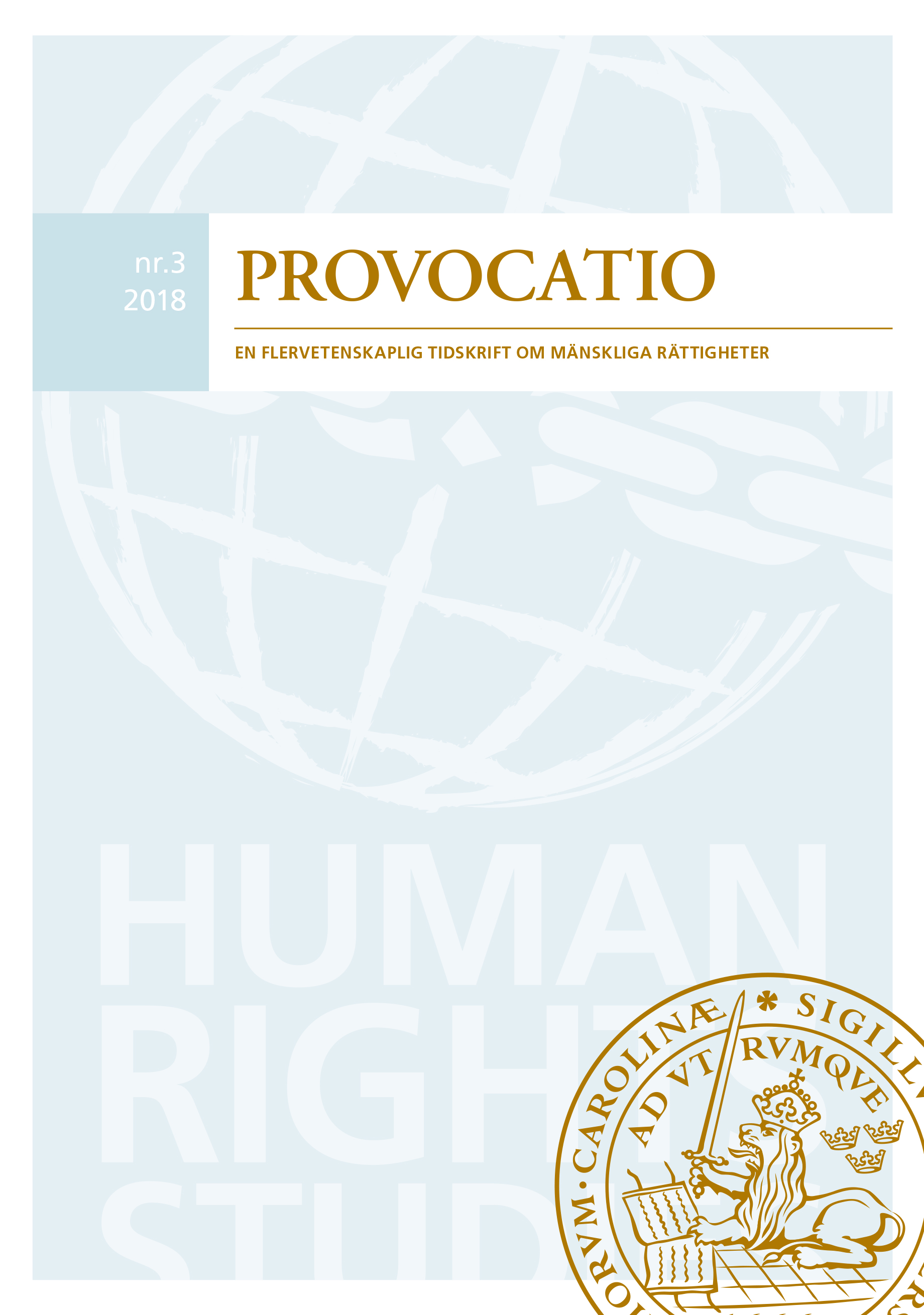Corporation as rights actor. A critical analysis of Creating Shared Value's possibility to fulfil human rights
Keywords:
mänskliga rättigheter, states, corporations, Creating Shared Value, CSV, UN Guiding Principles on Business and Human RightsAbstract
Though corporations affect humans in social, economic and environmental ways, the state is traditionally viewed as the primary human rights fulfiller. Meanwhile, corporations are in some cases bigger economic actors than states, but those companies do not have the same duties as states have towards citizens. The business concept Creating Shared Value (CSV) is described as a way of increasing the integration of corporation and society, with the objective of increasing the legitimacy of corporations; but the concept is also described as a means for obtaining competitive advantage. A shared value is created when there is a value for society, such as development in some way, and a value for corporations such as profit. In this article I question the common assumption of the state as the primary human rights fulfiller. When doing this, I chose to compare the business concept of CSV with UN Guiding Principles on Business and Human Rights (UNGPs). The second task I take on is to review CSV as a mean of fulfilling and upholding rights. Lastly, I discuss the theoretical consequences of a business concept, such as CSV, doing so. What consequences can come from shifting the responsibility/duty to fulfil human rights from states to corporations?


